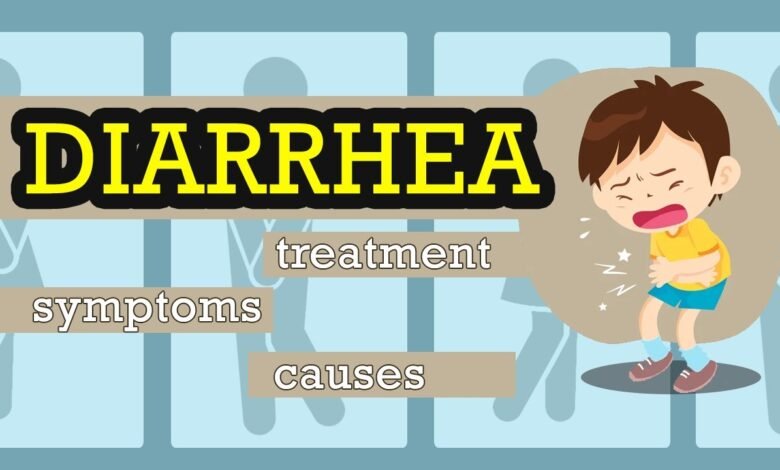When should I be concerned about watery diarrhea?
When should I be concerned about watery diarrhea?

Watery diarrhea can be a concerning symptom, particularly if it persists or is accompanied by other troubling signs. Understanding when to seek medical attention is crucial for maintaining your health and preventing complications. Below, we’ll explore the causes, symptoms, and when watery diarrhea might require medical intervention. We’ll also touch on the role of Nizonide 500 mg, an antiparasitic medication, in treating certain causes of watery diarrhea.
Causes of Watery Diarrhea
Watery diarrhea can result from various factors, ranging from minor to severe conditions. Some common causes include
Infections
Bacterial, viral, or parasitic infections are common causes of watery diarrhea. For instance, viruses like norovirus or rotavirus, bacteria such as E. coli or Salmonella, and parasites like Giardia can all trigger episodes of watery diarrhea.
Food Poisoning
Consuming contaminated food or water can introduce harmful microorganisms into the digestive system, leading to diarrhea.
Medications
Certain medications, such as antibiotics, can disrupt the balance of bacteria in the gut, leading to diarrhea. This condition is often referred to as antibiotic-associated diarrhea.
Lactose Intolerance
Individuals who are lactose intolerant may experience watery diarrhea after consuming dairy products due to their inability to digest lactose properly.
Irritable Bowel Syndrome (IBS)
IBS is a chronic condition that affects the large intestine and can cause a range of symptoms, including watery diarrhea.
Chronic Diseases
Conditions like Crohn’s disease, ulcerative colitis, or celiac disease can cause chronic diarrhea, which may sometimes be watery.
Parasites
Parasitic infections like those caused by Cryptosporidium or Giardia can result in prolonged episodes of watery diarrhea. This is where medications like nizonide 500mg might come into play.
When Should You Be Concerned?
While occasional watery diarrhea is common and usually resolves on its own, there are specific situations where you should be concerned and seek medical attention:
Duration
If watery diarrhea lasts more than two days for adults or 24 hours for children, it’s time to consult a healthcare provider. Prolonged diarrhea can lead to dehydration, especially in young children, older adults, and those with weakened immune systems.
Frequency
If you experience more than six watery bowel movements in a day, it’s a sign that your body is losing fluids too quickly, which can lead to dehydration and other complications.
Signs of Dehydration
Dehydration is a serious concern with watery diarrhea. Symptoms of dehydration include dry mouth, excessive thirst, dark yellow urine, dizziness, and reduced urine output. In severe cases, dehydration can cause confusion, rapid heartbeat, and fainting.
Presence of Blood or Mucus
If you notice blood or mucus in your stool, it may indicate a more severe underlying condition, such as an infection or inflammatory bowel disease. This warrants immediate medical attention.
Fever
A high fever (above 101°F or 38.3°C) accompanying watery diarrhea could indicate a bacterial or parasitic infection that requires treatment.
Severe Abdominal Pain
While mild cramping is common with diarrhea, severe or persistent abdominal pain is a red flag. This could be a sign of a more serious issue, such as appendicitis or a bowel obstruction.
Recent Travel
If you have recently traveled to a region with poor sanitation or known for waterborne diseases, watery diarrhea could be a sign of a parasitic infection, such as giardiasis. In such cases, prompt medical evaluation is necessary.
Underlying Health Conditions
Individuals with pre-existing health conditions, such as diabetes, heart disease, or a compromised immune system, should be especially vigilant. Diarrhea can exacerbate these conditions or make them harder to manage.
Treatment Options
The treatment for watery diarrhea depends on its underlying cause. Hydration is a crucial component of managing diarrhea, as it helps prevent dehydration. Oral rehydration solutions (ORS) are often recommended to replenish lost fluids and electrolytes.
In cases where diarrhea is caused by a bacterial or parasitic infection, specific medications may be required. For example, if a parasitic infection like giardiasis is identified as the cause, your healthcare provider may prescribe an antiparasitic medication like Nizonide 500 mg.
Role of Nizonide 500 mg
Nizonide 500 mg contains the active ingredient Nitazoxanide, an antiparasitic medication effective against a broad range of parasites, including Giardia lamblia and Cryptosporidium parvum. It works by interfering with the energy production of these parasites, ultimately leading to their death.
Nizonide 500 mg is particularly useful in treating diarrhea caused by these parasites, especially in cases where the infection is persistent or severe. The standard dosage for adults is usually one tablet twice daily for three days, but your healthcare provider will determine the appropriate dosage based on your specific condition.
It is important to take Nizonide 500 mg exactly as prescribed and complete the full course of treatment, even if symptoms improve before the medication is finished. This helps ensure that the infection is fully eradicated and reduces the risk of recurrence.
Preventive Measures
Preventing watery diarrhea involves a combination of good hygiene practices and cautious food and water consumption. Here are some tips to reduce your risk:
Hand Hygiene
Wash your hands thoroughly with soap and water, especially before eating, after using the restroom, and after handling raw food.
Safe Food Practices
Ensure that food is cooked thoroughly, and avoid consuming raw or undercooked meat, seafood, or eggs. Be cautious about eating from street vendors or in areas with poor sanitation.
Water Safety
Drink only bottled or boiled water when traveling to areas with questionable water quality. Avoid ice cubes and raw fruits or vegetables washed in untreated water.
Vaccination
Consider getting vaccinated against diseases like rotavirus, especially if you are traveling to regions where these infections are common.
Avoid Risky Behaviors
Refrain from consuming food or water from unreliable sources and be mindful of personal hygiene.
Conclusion
Watery diarrhea, while often a minor inconvenience, can sometimes be a symptom of a more serious condition. Recognizing the signs that warrant medical attention such as prolonged duration, high frequency, dehydration, blood in the stool, or severe abdominal pain is crucial for your health.
In cases where a parasitic infection is suspected, Nizonide 500 mg can be an effective treatment option. However, it is essential to consult with a healthcare provider for an accurate diagnosis and appropriate treatment plan.
By practicing good hygiene, being cautious about food and water consumption, and seeking prompt medical care when necessary, you can effectively manage and prevent watery diarrhea, protecting your overall health.



